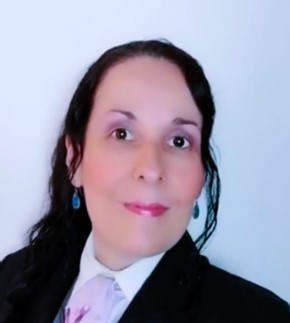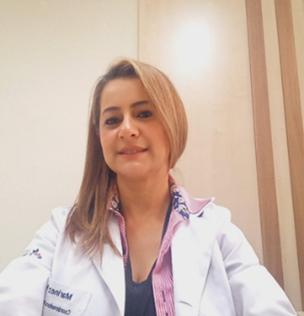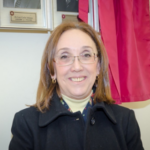Latin American women are playing an important role in shaping clinical research. Despite facing numerous challenges, they have achieved remarkable impact in the field. This article takes a closer look at their obstacles and triumphs and gives voice to some of the incredible Latinas we’ve had the opportunity to partner with.
Latinas engaged in clinical research encounter systemic biases and obstacles, including underrepresentation and restricted access to education, resources, and opportunities. Data from UNESCO and UN Women reveal that while women make up 45% of researchers in Latin America and the Caribbean, their representation in scientific fields remains at less than 30%.
Despite often filling roles that are less visible, many Latinas are making significant contributions to clinical research and serving as advocates for diversity, equity, and inclusion.
Three Ways Latinas are Advancing DEI in Clinical Research
1: Trailblazing Role Models and Mentors
Drawing from previous research and experiences with clinical research in the Latin American region, the team aims to illustrate the prominence of strong female figures in this field. Incorporating insights from various roles within clinical research, they present key factors to consider. Latinas in clinical research encounter systemic biases and obstacles, including underrepresentation, restricted access to education, resources, and opportunities. Despite these challenges, many Latinas actively contribute to clinical research, often in less visible roles. Latinas in Clinical Research advocate for equity, diversity, and inclusion through diverse channels.

Dr. Claudia Uña shares that someone who has inspired her in her career path in the world of medicine is Argentinian, Dr. Cecilia Grierson, the first woman to graduate and received a medical degree in 1859, overcoming the barriers in an originally male dominated field. She was a pioneer in the promotion of public health and medical education in Argentina, improving medical access, especially with the most vulnerable populations. Her emphasis on professional training laid the first foundations for the clinical research development in Argentina.
“La Dra. Cecilia Grierson, primera mujer en graduarse como médica en Argentina en 1889, venciendo las barreras en una profesión por aquel entonces dominada completamente por hombres. Fue pionera en la promoción de la salud pública y la educación médica en Argentina, mejorando el acceso a la atención médica especialmente para población vulnerable. Su énfasis en la capacitación profesional, sentó las primeras bases para el desarrollo de la Investigación clínica en Argentina.”
– Dra. Claudia Uña

Flor Caffarena shared her guide and inspiration in clinical studies: her mother, Helena Maria Gandur. “Even before I started working in this field, I saw what she did and listened to her talk about clinical research; her work always caught my attention. I started working with her, sharing the same office, learning everything from her, and I consider her to be the best in her position, not only because of her performance, but because of the passion and love she puts into everything she does.”
“Mi mamá, Helena Maria Gandur. Desde antes de empezar a trabajar en este ámbito, veía lo que ella hacía y la escuchaba, siempre me llamó mucho la atención. Entré trabajando con ella, compartiendo una misma oficina, aprendiendo todo de ella, quien considero que es la mejor en su puesto, no solo por lo bien que se desempeña en él, sino por la pasión y el amor que pone en todo lo que hace.”
– Flor Caffarena
2: Community and Organizational Leadership
Latinas spearhead advocacy organizations and initiatives dedicated to advancing diversity and inclusion within clinical research. Through their leadership and activism, they drive meaningful change and create spaces for underrepresented voices to be heard.

Marinez Pugsley moderates CRC Networking groups across multiple platforms and actively promotes professional networking, both regionally and internationally. Dedicated to advancing the clinical research community, she ensures her network stays informed about training opportunities and job vacancies in the region. Inspired by Daniele Argentina’s selflessness, who holds a prominent position in Global Clinical Research, Marinez appreciates Daniele’s support in refining her LinkedIn profile and offering professional advice, despite not knowing her personally. Daniele even provides private calls to share valuable insights with her.
Marinez along with Dr. Heda Amarante annually organize a Clinical Research conference in Curitiba Brazil, open to clinical research professionals, where they are encouraging open communication and knowledge sharing on various trending research topics.
3: Using Their Personal Experiences
Latinas actively engage with colleagues and organizations to undertake research addressing health disparities and inequities within Latino communities. They champion inclusive and culturally competent approaches, ensuring that research endeavors accurately reflect and address the diverse needs of all communities.

Alejandra Vidal says that: “I enjoy the intellectual challenge and interdisciplinary collaboration that characterizes clinical research, as well as the sense of purpose that comes from contributing to the advancement of medical and scientific knowledge. However, I think the most exciting thing is that, for example, today we may be working on the study of a therapy that, in the coming years, may mean the cure of a disease. And that is the great value of our work.”
“Disfruto del desafío intelectual y la colaboración interdisciplinaria que caracteriza a la investigación clínica, así como del sentido de propósito que proviene de contribuir al avance del conocimiento médico y científico. Sin embargo, creo que lo más apasionante es que, por ejemplo, hoy mismo podemos estar trabajando en el estudio de una terapia que en los próximos años, puede significar la cura de una enfermedad. Y ese es el gran valor de nuestro trabajo.”
– Alejandra Vidal
Flor Caffarena says that “I believe that the work environment greatly influences how passionate you are about your work, and I consider myself an extremely lucky person in that sense. Because since I started, I have been surrounded, not only by very good professionals, but also, and more importantly, excellent people. And I am lucky to have my mother as a co-worker and a boss who not only knows and is very involved in everything, but also has an indescribably big heart and is super present in everything.”
“Creo que el ambiente laboral influye muchísimo en qué tanto le apasiona a uno su trabajo, y me considero una persona sumamente afortunada en ese sentido, porque desde que inicié, estuve rodeada, no solo de muy buenos profesionales, sino también, y más importante, excelentísimas personas, y tengo la suerte, de tener a mi mamá como compañera de trabajo, y un jefe que, no solo sabe y se involucra muchísimo en todo, sino que tiene un corazón indescriptible de grande y está súper presente en todo.”
– Flor Caffarena
Overall, Latinas actively advocate for equity, diversity, and inclusion within the field of clinical research, drawing inspiration from their personal experiences and the accomplishments of others. They pave the way for future generations of Latino researchers by championing these values.

In the words of Dr. Heda Amarante: “I think that female health professionals, who are already in the majority in many countries, will be very prevalent in clinical research due to the compatibility of this work with the feminine characteristics of dedication, determination, professional ethics, correctness, appreciation for detail and quality of care with the patient, among others.”
“Acho que as profissionais mulheres da área de saúde que já estão em maioria em muitos países, terão muita predominância na pesquisa clínica pela compatibilidade desse trabalho com as características femininas de dedicação, determinação, ética profissional, correção, apreço pelo detalhe e pela qualidade do cuidado com o paciente, dentre outras.”
– Dra. Heda Amarante
WCG LatAm Contributors:
Juan Rosero, Site Services Specialist, WCG
Carolina Rodriguez Alvarez, Country Manager, Latin America, WCG
Renata Levart, Site Services Specialist, WCG
Mercedes Lopez, Regional Operations Manager, Site Services, WCG
Thomas Stone, Site Services Specialist, WCG
Gabriella Tost, Site Services Specialist, WCG
Contributors Interviewed:
Dr. Claudia Uña – Argentina – Former WCG Clinical Research Coordinator
Alejandra Vidal – Chile – Former WCG Clinical Research Coordinator
Marinez Pugsley – Brazil- Former WCG Clinical Research Coordinator
Dr. Heda Amarante – Brazil – Former WCG Principal Investigator
Flor Caffarena – Argentina – Clinical Research Coordinator , WCG
References:
Latin America’s female scientists pack a big punch despite glass ceiling: https://www.reuters.com/article/us-latam-women-science/latin-americas-female-scientists-pack-a-big-punch-despite-glass-ceiling
Are you ready to transform the diversity of your clinical trials?
Use this form to request a consultation with WCG's Diversity, Equity & Inclusion experts.
